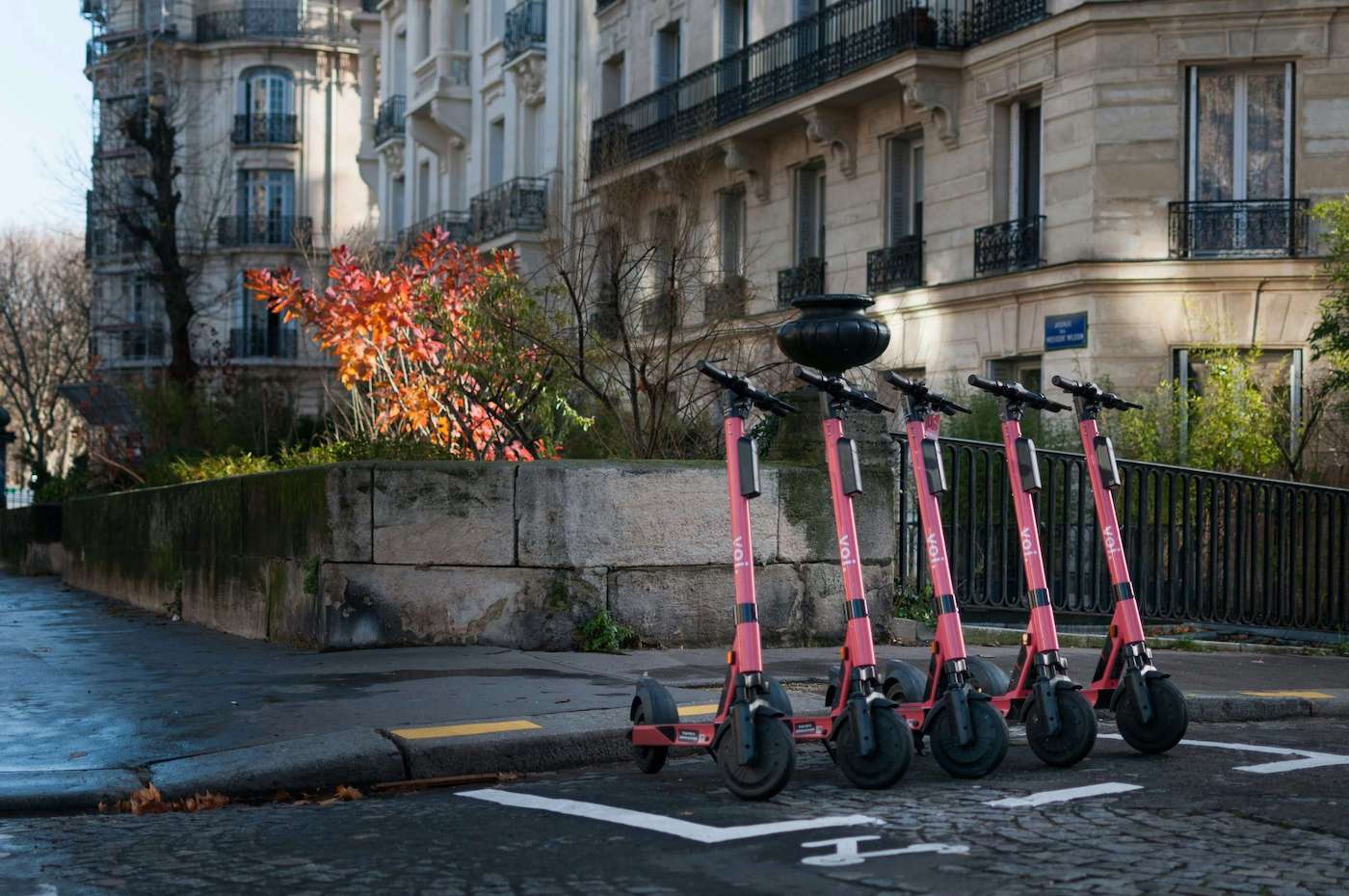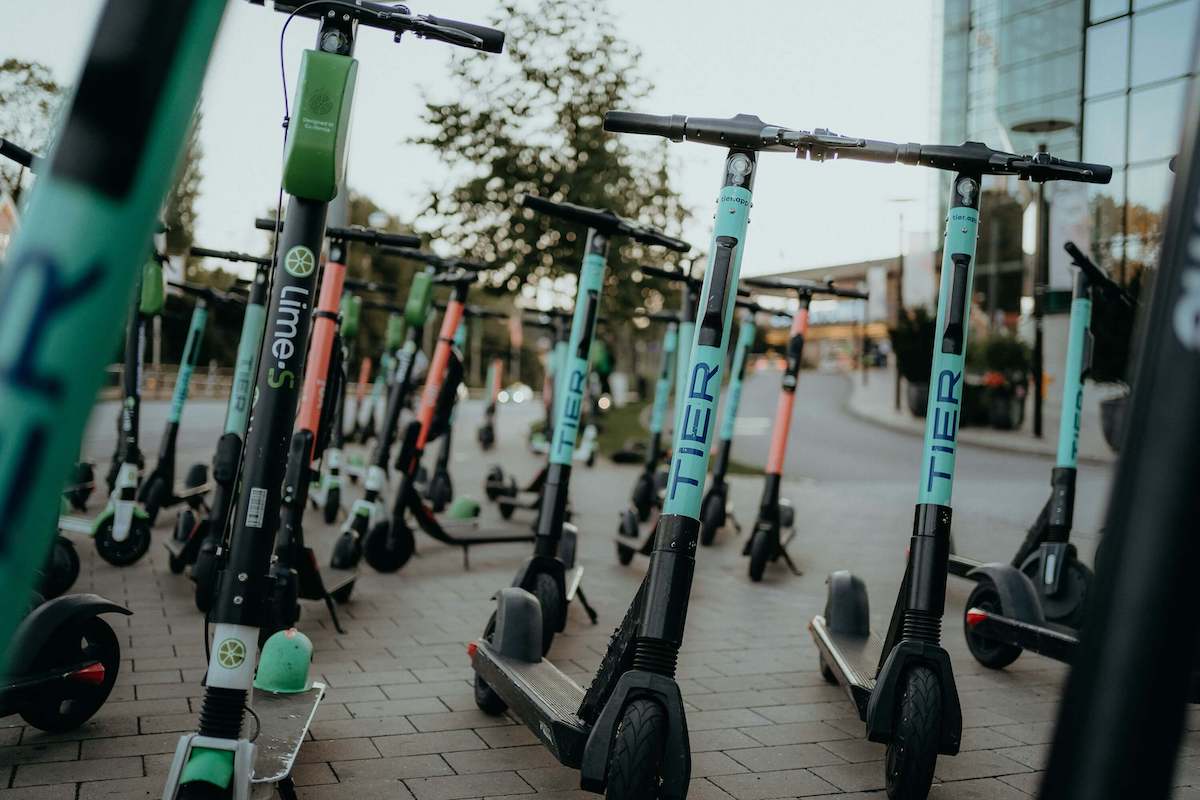back to the blog
Do You Need a Licence For E-Scooters in the UK?

Olivia C · August 18, 2025
If you’re thinking about hopping on an e-scooter, you might be wondering whether you need an e-scooter licence in the UK.
E-scooters are growing in popularity as a convenient, low-cost way to get around cities, especially for short trips. But their legal status is still a grey area.
In this guide, we’ll explain what counts as an e-scooter, where you can legally ride one, and the type of licence or driving entitlement you need to ride safely and legally.
What is an Electric Scooter (or ‘E-Scooter’)?
The term ‘scooter’ can be confusing, since it covers a few very different types of two-wheel vehicles.
In the context of motorcycles, a scooter is a type of motorbike that has a step-through frame, generally smaller wheels, auto transmission (twist and go) and smaller engines (commonly 50cc - 150cc). Essentially, think of a Vespa, and that’s a scooter.
In the context of e-scooters, the word refers to a stand-up electric scooter with a platform for your feet, small wheels and handlebars — like an electric version of a kids’ kick scooter. They’re designed for short-distance urban travel and are becoming popular in many UK cities, though their legal status remains a grey area, which we’ll cover below.
To make things even more confusing, there are also electric versions of traditional scooters (step-through motorbikes). But, people rarely call these ‘electric scooters’, they’re usually referred to as motor-scooters, electric mopeds, or electric motorcycles instead.

Are E-Scooters Legal in the UK?
Not in public, no.
As it stands, it’s illegal to ride a privately owned electric scooter (also known as an ‘e-scooter’) in public, such as on the roads, pavements or parks.
If you’re caught riding an e-scooter in public, you can get points on your driving licence, even if it’s a provisional licence. Your scooter can also be seized by the police.
The only legal place to ride these are on private land, with the permission of the landowner. So if you wanted to ride one on your drive or on property you own, that’s perfectly legal.
There’s a big caveat to this though - some areas in England are trialling e-scooter rental schemes to be used on public roads.
Rental E-Scooter Schemes
Around 50 areas in England now operate rental e-scooter schemes, including major cities such as London, Manchester, Birmingham, and Oxford. These trials are part of a government initiative that began in 2020, originally planned to run for 15 months, but have since been extended four times. In the latest update, the Department for Transport announced that the trials will continue until May 2028, allowing more time to gather evidence on e-scooter safety, the impact of local area characteristics, and their role in supporting new government transport and sustainability goals.
Local authorities in England can apply to host a new e-scooter trial in their area, provided they meet the necessary criteria, helping to address remaining evidence gaps in the national evaluation of the schemes.

Do You Need a Licence to Rent an E-Scooter?
Yes – you need a valid full or provisional UK driving licence with a category Q entitlement (you can check the back of your licence to see if you’ve got it).
If you have an overseas driving licence, you can still rent an e-scooter if:
- You have a full licence from an EU or EEA country that allows you to drive low-speed mopeds or motorcycles.
- Or you have a full licence from another country that lets you drive small vehicles (cars, mopeds, or motorcycles) and you’ve been in the UK for less than 12 months.
Note: You can’t use a rental e-scooter if you have an overseas provisional licence, learner permit or equivalent.
You won’t need any motorbike related licences or certificates, so no need for a CBT certificate or full licences.
Other Legal Requirements to Rent E-Scooters
You can only rent an electric scooter through official rental schemes, which are part of government-backed ‘e-scooter trials’ running in certain areas. Each scheme has its own rules, so make sure you follow them.
When riding a rental e-scooter, you’re allowed to use public roads and cycle lanes, but it’s illegal to ride on pavements or motorways since it’s classed as a low-speed vehicle.
The rental operator will have third-party motor insurance, so you don’t need to arrange your own. Although there’s no legal requirement to wear a helmet, it’s strongly recommended for your safety.

When will E-Scooters Be Legal in the UK?
The UK government has indicated it plans to legalise private e-scooters for use on public roads, but this will require new legislation, and there’s no confirmed timeline yet.
When legalisation does arrive, privately-owned e-scooters are expected to come with rules similar to those for rental scooters, but stricter.
Potential regulations could include:
- Mandatory registration and licence plates
- Speed limits (likely around 12.5 mph)
- Rider training or a basic test (similar to how CBTs for motorbikes are run)
- Regulations around insurance
Ministers are also considering a minimum age of 14. These measures aim to make the scooters safer, tackle modified high-speed models, and give police a way to deal with misuse, which has been linked to thousands of crimes and accidents in recent years.
Until these laws are in place, the only legal option for riding on public roads are the official e-scooter rental schemes.
Current E-Scooter Trial Locations in UK
Here are the trial areas for e-scooter rentals, but this list will change over time:
- Bournemouth and Poole
- Buckinghamshire (Aylesbury, High Wycombe and Princes Risborough)
- Cambridge
- Essex (Braintree, Chelmsford and Colchester)
- Gloucestershire (Cheltenham, Gloucester and surrounding areas)
- Liverpool
- London (participating boroughs)
- Milton Keynes
- Newcastle
- North and West Northamptonshire (Northampton, Kettering, Corby, Wellingborough, Rushden and Higham Ferrers)
- Norwich
- Nottingham
- Oxford
- Salford
- Slough
- Solent (Isle of Wight, Portsmouth and Southampton)
- West Midlands (Birmingham, Coventry)
- West of England Combined Authority (Bristol, Bath and parts of South Gloucestershire)



